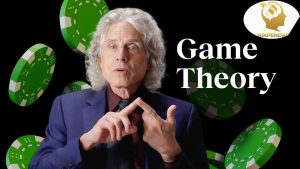
Beginner
● Task 1: The Three Levers The speaker says there are three “levers” to become a millionaire. Talk with a partner and name the three levers in your own words.
1. Lever #1:
2. Lever #2:
3. Lever #3:
● Task 2: Agree or Disagree The speaker says that “the majority of millionaires are first-generation wealthy.” Do you think it is possible to become rich without rich parents? Talk about your ideas with a partner.
● Task 3: A Little Every Day The speaker says that investing even a small amount like $14 a day can help you become a millionaire. Talk with a partner about a small, everyday habit you have that helps you in the long term, like exercising, studying, or saving money.
Intermediate
● Task 1: Explaining Compounding The speaker compares investing to “rolling a snowball down a hill.” Explain this idea to a partner. What does “compounding” mean in simple terms? Why is it so powerful?
● Task 2: Discussing the Obstacles The speaker says that “money is deeply emotional.” He also talks about reasons why people don’t invest. In a small group, discuss some of these reasons, such as:
o Learning from our parents
o Feeling like we don’t have enough money
o Having responsibilities
o Not being taught about investing
● Task 3: What’s the Point? The speaker says, “Investing is boring.” In the end, he says that having a million dollars is not a feeling, but it can help you feel “generous” or experience “a true moment of awe.” What does he mean by this? Discuss with a partner what your “rich life” means to you.
Advanced
● Task 1: Debate the “Grievances” The speaker talks about his “grievances” with people who focus on “dividend investing” or “day trading.”
o Have a debate. One person argues for the speaker’s point of view, and the other argues against it.
o What are the benefits of the speaker’s advice? What are the possible risks of following “day trading” advice?
● Task 2: The Emotional Barrier The speaker says, “This is what the math doesn’t show.” He then talks about the emotional reasons people don’t grow their wealth. In a small group, discuss the role of emotion in financial decisions.
o Why is it so difficult for people to follow the advice even when the math is clear?
o What is the difference between “playing small” and being responsible with money?
● Task 3: The Role of a Financial Advisor The speaker gives advice about working with a financial advisor.
o What advice does he give about fees? Why?
o Do you think it’s necessary to hire a financial advisor?
o Discuss the pros and cons of using a financial advisor versus managing your own investments.
Beginner
● Task 1: Listen for Numbers Listen to the video and write down these numbers as you hear them.
o What is the salary mentioned in the example?
o How many years do you need to invest for to hit one million dollars?
o How much money per month should you invest at age 25?
● Task 2: True or False Listen and decide if these sentences are true or false.
o The speaker says most millionaires inherit their money. (True/False)
o The video says time is the most important thing for investing. (True/False)
o The speaker says to pay a financial advisor a percentage of your returns. (True/False)
● Task 3: The Three Levers Listen and put the three “levers” in the correct order as the speaker mentions them.
0. Your investment returns
1. How long you invest for
2. How much you invest
Intermediate
● Task 1: Listen for Details Listen carefully and answer these questions with a short answer.
o What is the percentage of gross income the speaker suggests investing?
o What is the “super conservative” return percentage the speaker assumes?
o What is the number one thing that will “alter your investment returns”?
● Task 2: Understanding Metaphors The speaker uses a few metaphors. Listen for them and explain what they mean in your own words.
o “It’s like rolling a snowball down a hill.” What does this mean for investing?
o “It’s like, if you’re running a race, put a weight vest on…” What does this mean for his assumption about returns?
● Task 3: Listen for Advice Listen to the section where the speaker gives advice. Write down three specific pieces of advice he gives about how to increase your investments.
Advanced
● Task 1: Understanding Tone and Attitude The speaker has a very direct and opinionated tone. Listen to the section where he talks about “dividend investor 2222” and “TikTok drop shipping nuts.”
o What is his attitude toward these people?
o Why do you think he uses this kind of language?
o What message is he trying to communicate with his tone?
● Task 2: The Meaning of “Real” The speaker contrasts “real investing” with “day trading” and “gambling.” He also says that a million dollars has “real” meaning when it allows for generosity and awe.
o Listen to these parts of the video. What is the speaker’s definition of “real” in the context of money and investing?
o What does he say are the fake or unreal parts of wealth?
Task 3: Listen for Cause and Effect Listen for the cause-and-effect relationships the speaker describes. For example, “Every single day you are not investing aggressively, you are losing a tremendous amount of money.” Write down two more cause-and-effect relationships from the video and explain them in your own words.
Beginner
● Task 1: Read and Answer Read the following sentences from the video and answer the questions.
o “The majority of millionaires are first-generation wealthy.” What does this mean?
o “You don’t have to depend on having wealthy parents in order for you to become a millionaire.” Does the video say you need to have rich parents? Yes or No.
● Task 2: Find the Main Idea Read these sentences from the video. Which sentence is the most important idea of the video?
o “The majority of millionaires are first-generation wealthy.”
o “Time truly is the most important thing you have on your side.”
o “I want to show you how you can become a millionaire even if you weren’t born into wealth.”
● Task 3: Match the Words Read the words and match them with their simple meaning.
o Invest – a) to make money bigger over time
o Compound – b) to put money into something to make more money
o Fees – c) money you pay for a service
Intermediate
● Task 1: Read and Summarize Read the section about “Lever number one.” Summarize in one or two sentences what this lever is and why it’s so important.
● Task 2: Find and Explain Read the paragraph that starts with “When I tell people this…” Find the two different “lenses” the speaker talks about. Explain in a short paragraph what they are and why he thinks one is better than the other.
● Task 3: Read and Complete Read the following sentences from the video. Fill in the missing words using the words below.
o The majority of millionaires are _____ wealthy.
o Don’t put off _____.
o Money is deeply _____.
o Investing is _____.
(Words: emotional, investing, first-generation, boring)
Advanced
● Task 1: Analyze a Metaphor Read the section where the speaker compares investing to “a weight vest” for a runner. Analyze this metaphor in a paragraph. What is the “weight vest” in his example, and what is the “real race”? How does this metaphor support his argument?
● Task 2: Identify and Evaluate Arguments Read the section about “Lever number three.” What is the speaker’s main argument against people who expect very high returns? How does he support this argument with facts and examples? Write a short analysis.
● Task 3: Compare and Contrast Read the final section of the video about what the “math doesn’t show.” Compare and contrast the speaker’s view of a millionaire life with the view of the “financial freaks online.” Use specific examples from the video to describe both points of view.
Beginner
● Task 1: My Financial Goal The video talks about becoming a millionaire. What is one financial goal you have? It could be saving for a new phone, a trip, or a car. Write a few sentences about your goal.
● Task 2: The Two Levers The speaker talks about two “levers” you can use to become a millionaire. Write a simple sentence for each lever to explain what it is.
1. Lever #1: How long you invest for.
2. Lever #2: How much you invest.
● Task 3: The Snowball The speaker compares investing to “rolling a snowball down a hill.” In a few sentences, explain what this means. How does the money get bigger?
Intermediate
● Task 1: A Letter to a Friend Write an email to a friend. In the email, explain the main lesson of the video. Use your own words to describe the three “levers” and why they are important for becoming a millionaire.
● Task 2: Responding to a Grumble The speaker mentions that some people say, “Where am I going to get $400 a month?” Write a short paragraph in response to this question. Use ideas from the video to explain how a person can find money to invest, like increasing their investment rate by 1% or keeping housing costs low.
● Task 3: Boring vs. Exciting The speaker says that “investing is boring” but “being able to be super generous” is exciting. Write a short essay (2-3 paragraphs) explaining this idea. Why is the act of investing boring? How does it lead to a more exciting life?
Advanced
● Task 1: An Expository Essay The speaker says that “money is deeply emotional.” Write an expository essay (200-250 words) explaining this idea. Use specific examples from the video, such as learning about money from parents or feeling frustrated, to support your explanation.
● Task 2: A Persuasive Argument The speaker says that you have “less control” over your investment returns (lever #3) and that it shouldn’t be your priority. Write a persuasive letter to someone who is focused on getting a high return. Use the speaker’s arguments about historical returns and fees to convince them to focus on the other two levers.
● Task 3: A Reflective Journal Entry Write a reflective journal entry (200-250 words) about your own financial journey. Use the concepts from the video to analyze your own behavior and attitude toward money.
o Do you have an “automatic habit” of saving or investing?
o Do you play small with your money?
o What are some of your emotional or personal obstacles to building wealth?





